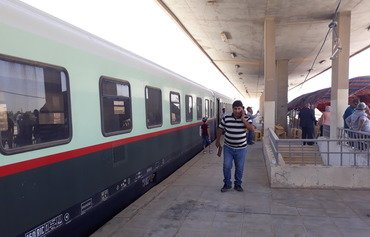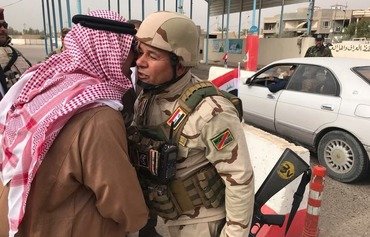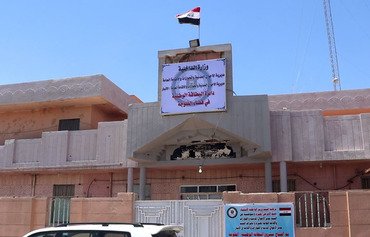The Anbar province city of Fallujah has been gradually recovering from the devastation wrought by the "Islamic State of Iraq and Syria" (ISIS) group's period of control.
In a recent sign of recovery from the ISIS era, the city saw the arrival last month of the first train from Baghdad after a five-year suspension of the train service between the two major Iraqi cities.
The General Corporation of Railways announced July 19th the rehabilitation of the railway after ISIS destroyed its infrastructure and stations.
On July 25th, the Iraqi Transportation Ministry offered free rides to train passengers travelling from Baghdad to Fallujah in an effort to "serve the good people of Fallujah", it said in a statement.
![Fallujah's growing stability has allowed for businesses and restaurants to flourish in the post-ISIS era. [Photo courtesy of the 'City of Fallujah Now' Facebook page]](/cnmi_di/images/2018/08/01/13647-Iraq-Anbar-cafe-600_384.jpg)
Fallujah's growing stability has allowed for businesses and restaurants to flourish in the post-ISIS era. [Photo courtesy of the 'City of Fallujah Now' Facebook page]
Polishing Fallujah's tarnished image
Located about 60 kilometres west of Baghdad, Fallujah was the first major Iraqi city to fall to ISIS in 2014, which used the city to house foreign fighters and as a launchpad to carry out terror attacks in other Anbar cities and the capital Baghdad.
Iraqi forces, backed by international coalition forces, recovered the city in June 2016, after five weeks of intense fighting, but ISIS's period of occupation left a mark on Fallujah's reputation as a city that was considered a stronghold for the group.
"The image that the world has of Fallujah is a false image that does not reflect the reality of Fallujah's society, which is peaceful, generous, loving of others and rejecting of all forms of terrorism and violence," said Fallujah mayor Issa al-Sayer.
The city's population, along with local tribesmen, are today more communicative with local authorities and security forces in order to enhance security and stability in the province, he told Diyaruna.
"The guest houses and diwans of tribal leaders now host frequent dialogue sessions with local officials to enhance mutual trust and co-ordinate security matters," he said.
'First to rise against extremists'
"Everyone must remember that Fallujah was one of the first cities to rebel against terrorists, including those under the banner of al-Qaeda," Anbar Tribal Council head Abdul Wahab al-Sarhan told Diyaruna.
At the time, the tribes rose up against the group within the framework of what was then known as the Sahwa Forces, from 2005 through 2007, he said.
When al-Qaeda first spread in the city, the Fallujah street -- including the city's intellectuals and academics -- rejected the presence of the group and its criminal activities, which distorted the bright image of the city, al-Sarhan said.
Most of the terror elements were not native to Fallujah nor members of its indigenous tribes, he said, with many arriving from across the Syrian border.
These elements today hide in bunkers deep in the desert, he said, calling on security forces to hunt them down, drive them out of the country and secure the border.
"What more can we do to prove to the world that Fallujah and other Anbar cities reject terrorism after they have provided more than 10,000 fighters who fight terrorism today as part of the Tribal Mobilisation Forces, using their modest personal weapons," he asked.
This is in addition to 7,000 volunteer fighters who were involved in fighting terror elements without any compensation, he added.
Residents 'strong backbone' for police
Fallujah "has become a city that is hostile to extremist beliefs", Fallujah police chief Col. Jamal al-Jumaili told Diyaruna.
Incubator environments not only shelter and abet terror elements but also provide an ideologically conducive environment for their extremist thought, he said, noting that this is no longer the case in the city of Fallujah.
"There is no longer anyone who advocates [for ISIS] or believes in it after the destruction and bloodshed the city has suffered at the hands of those terrorists," he said.
Residents now take it upon themselves to report suspicious activity and persons, said al-Jumaili, and have thus become a "strong backbone for police forces".
Fallujah has regained its "civilised identity that the obscurantists had tried to shroud from the eyes of the world".

![Fallujah residents paint graffitti on the walls of their city affirming that 'Fallujah is a city of peace'. [Photo courtesy of the 'City of Fallujah Now' Facebook page]](/cnmi_di/images/2018/08/01/13646-Iraq-Anbar-Fallujah-600_384.jpg)






